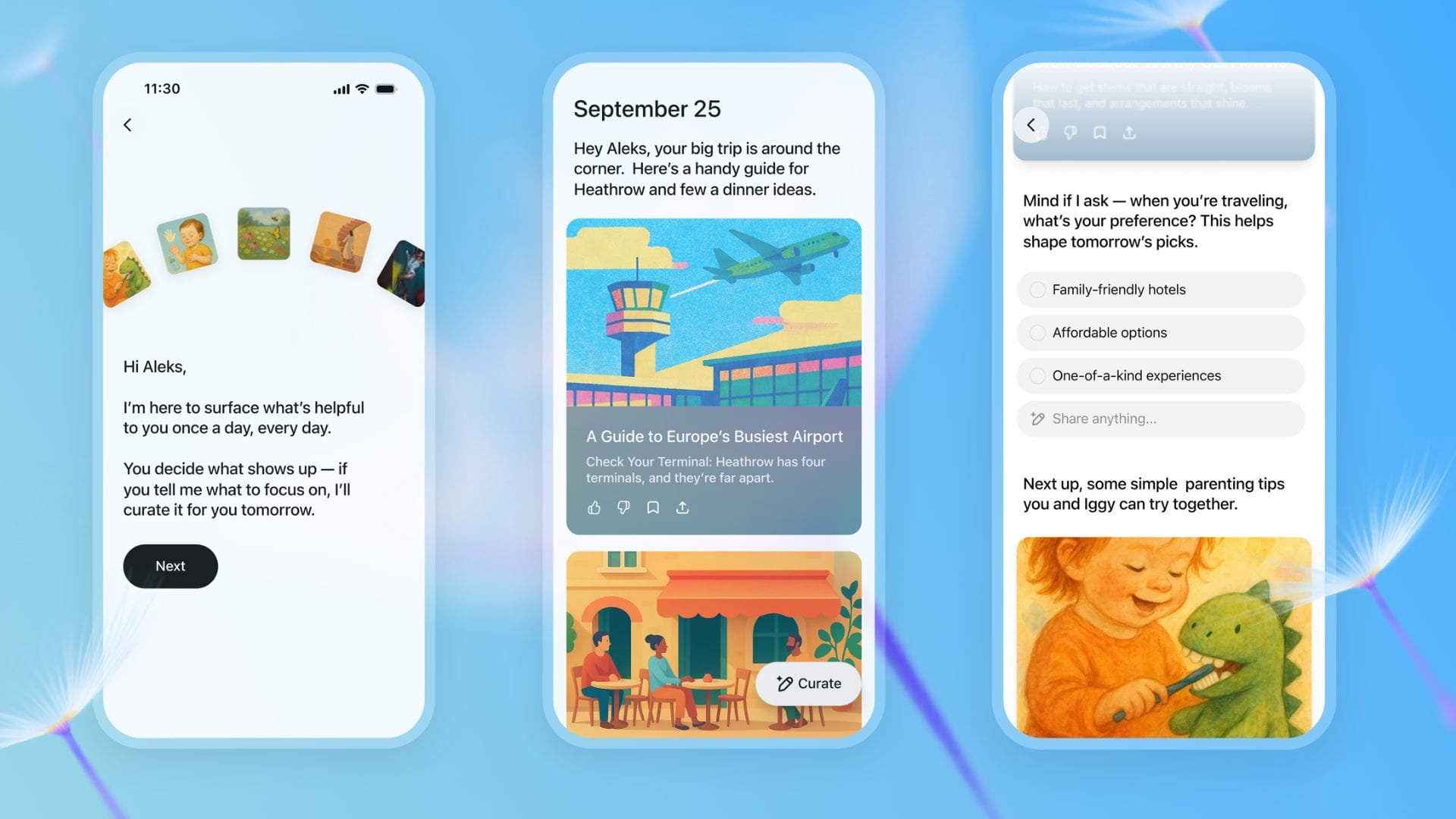OpenAI launches Pulse, a $200 monthly ChatGPT feature that delivers daily personalised updates
OpenAI introduces Pulse, a US$200 monthly ChatGPT feature that delivers personalised daily updates by analysing user activity overnight.

OpenAI has introduced a new feature for its ChatGPT platform, called Pulse, designed to provide users with daily, personalised updates tailored to their activity and preferences. The tool works overnight, analysing chat history, saved memory and user feedback before presenting information in a digestible format the next morning.
Table Of Content
How Pulse works
Pulse is available to ChatGPT Pro subscribers on mobile devices for a monthly cost of US$200. Each evening, the system reviews a user’s activity and linked accounts to prepare a set of personalised insights. These can include reminders about upcoming meetings, fresh ideas for work projects, or even recipe suggestions.
“Each night, it synthesises information from your memory, chat history, and direct feedback to learn what’s most relevant to you, then delivers personalised, focused updates the next day,” OpenAI explained.
Users can connect Pulse to services such as Gmail and Google Calendar, which enables the tool to provide everything from a meeting heads-up to a reminder about buying an anniversary gift. OpenAI emphasised that users remain in full control of what Pulse can access and what content it generates.
The prepared information appears as topical visual cards on the following day, which can be tapped for further details. According to the company, the aim is to “proactively bring you what you need” rather than requiring users to request it manually.
Availability and pricing
Currently, Pulse is limited to the ChatGPT Pro tier, which costs US$200 per month. OpenAI has confirmed plans to expand access in the future, first to Plus subscribers at US$20 per month and eventually to all ChatGPT users.
The feature’s outputs are temporary, with updates only available for a single day. However, users can save them within a chat if they want to revisit the information later. OpenAI noted that while the system is designed to anticipate needs, it may sometimes provide irrelevant suggestions, such as tips for a project that has already been completed.
Industry competition
OpenAI’s move reflects a wider industry trend towards proactive AI tools that deliver personalised support. Samsung already offers Now Bar and Now Brief, features that scan user data and activities to provide daily guidance on health, routines, travel, news and weather. These tools are available free of charge and run with on-device protections for data security.
Other companies are pursuing similar paths. Perplexity’s Comet browser uses Connectors to automate tasks across apps such as Gmail and WhatsApp, while services like Gemini and Dia browser allow users to create custom shortcuts. These shortcuts can be triggered with a simple backslash, reducing the need for long prompts and streamlining everyday tasks.
OpenAI hopes Pulse will set ChatGPT apart by positioning it as not only a reactive chatbot but also a proactive digital assistant that integrates seamlessly into daily life.
















